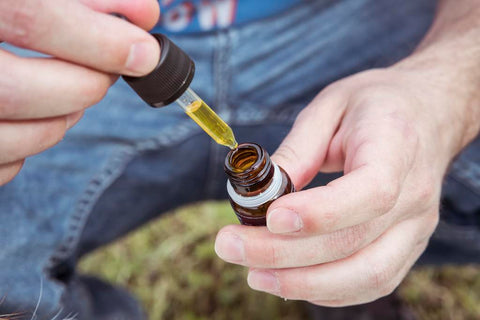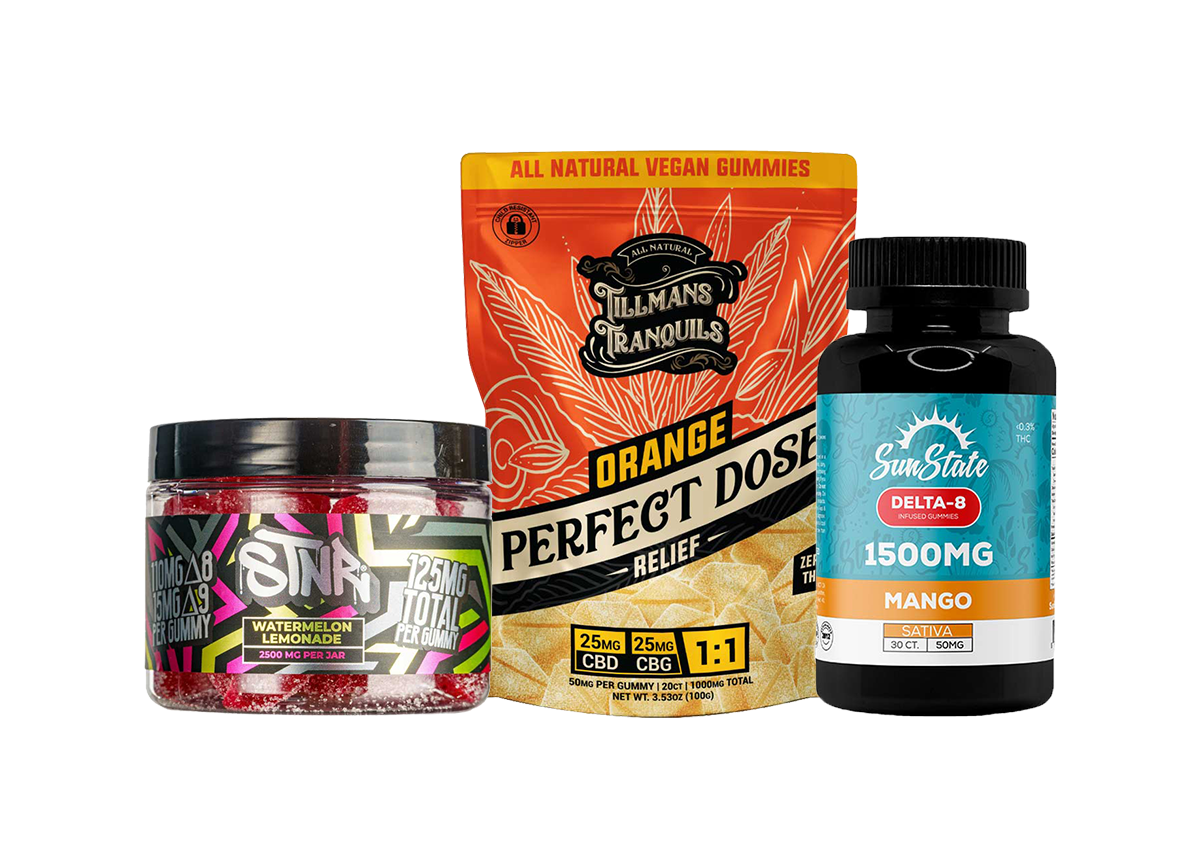Almost everywhere you look, someone is trying to sell you CBD oil. But what exactly is CBD oil, and how do you use it?
You will learn the key factors for choosing a CBD, including:
- What is CBD oil
- How to use CBD oil
- What to use CBD oil for
- What is the correct dosage for CBD oil
- Is CBD oil safe
- Which CBD oil is right for you
- How to store your CBD oil
What Is CBD Oil?

CBD stands for cannabidiol, which is a phytocannabinoid (or plant chemical) found in certain plants, precisely the Cannabis variety of plants, including both industrial hemp and marijuana plants.
CBD oil typically comes in a glass bottle with a dropper to assist in administering the oil orally. The CBD oil is not pure CBD concentrate. CBD oil is usually mixed with a carrier oil, such as coconut oil MCT (medium chain triglyceride) oil, hemp oil, grape seed oil, olive oil, and others.
The carrier oil helps dilute the natural taste of the CBD extract. Sometimes, CBD oil comes in different flavors, including spearmint and strawberry. This flavoring helps provide a sweet taste to the oil versus the natural bitter taste.
How to Use CBD Oil Tinctures?
CBD oil is meant to be taken orally. The preferred method is to place the drops under your tongue and let it sit there for 60 seconds. This allows the CBD to be absorbed into your bloodstream. Then, swallow the remaining CBD oil.
Tinctures usually come with a dropper to measure the CBD oil tincture, so you don't have to count how many drops you take.
Lately, people have also been using CBD oil as a topical. Sometimes, people rub a small amount (1 or 2 drops) into their face or wherever they have dry skin, such as elbows or knees, to help soften the skin.
What Do You Use CBD Oil For?
Potential applications of CBD are wide-ranging and may include promoting general well-being and supporting a balanced lifestyle. Some individuals have reported experiencing positive effects such as relaxation and mood. However, it's important to note that the specific impact of CBD can vary among individuals. While anecdotal evidence suggests diverse uses, it's crucial to approach CBD as part of a holistic approach to well-being. As with any supplement, individuals should consider consulting with a healthcare professional to determine its potential role in their wellness routine.
What is the Correct Dosage for CBD Oil?

Photo by Enecta Cannabis extracts on Unsplash
There are no valid dosage recommendations for CBD oil.
Your specific dosage relates to genetics, height, weight, dosage form, and other medications you are taking. Therefore, doses can vary from person to person.
You may need to experiment with your dosage more than once to provide you with the desired effect.
A famous saying amongst CBD users is, “Start low and go slow.” This means starting with small doses and gradually increasing the dose until you reach the desired effect.
Finding the correct dose for you will involve trial and error. Keep going. Be patient and stick with it. Consistency is vital with CBD.
What exactly is CBD oil, and how do you use it?
Are CBD Oils Safe?
Yes, CBD oil tinctures are generally considered safe to use.
- CBD is not considered to have an addictive profile
- CBD does not provide a high like THC
- CBD does not have a lot of significant side effects. The most common side effects include nausea, diarrhea, and drowsiness.
However, if you are taking prescription medication, there can be a risk of drug interactions. That said, be sure to consult with a healthcare professional before taking CBD products.
Lastly, always check the CBD oil ingredients and ensure you are not allergic or sensitive to any carrier oils in the product.
How Do I Know Which CBD Oil is Right for Me?

With so many CBD oils available and new brands popping up daily, it is easy to get overwhelmed when buying one. Finding a reputable brand takes some research.
Here are a few things to keep in mind when researching CBD oil:
- Has the product been lab-tested?
- What to look for in lab testing
CBD Oil Lab Testing
When researching CBD oil, ask to see the lab tests, also known as certificates of analysis or COAs. Usually, these should be done by a third-party lab, not the manufacturer.
What to look for in these lab results?
Lab results can be confusing, but there are only a few essential items to look out for.
- Confirm that the CBD content on the lab result matches the CBD content on the labeling.
- Check that the THC content is less than the federal limit of 0.3%. Usually, it will be a percentage or, say, ND (not detected)
- Confirm there are no pesticides, heavy metals, or other harmful ingredients.
What are the different CBD oil tinctures available?
Photo by Chelsea Shapouri
What is Full Spectrum CBD Oil?
Full-spectrum CBD oil includes extracts of the whole plant, including terpenes, CBD, THC, and other cannabinoids such as CBG or CBN. Many people prefer a full spectrum oil due to the entourage effect, meaning both CBD and THC.
What is Broad Spectrum CBD Oil?
Broad-spectrum CBD oil is also an extract of the whole plant but typically does not include THC. Broad-spectrum CBD oil is good for consumers who have a THC sensitivity or do not want THC in their products to avoid issues during a drug test.
What is Isolate CBD Oil?
Isolate CBD oil is an extract that only contains CBD and not the other cannabinoids or THC. Isolate CBD oil tends to be cheaper than full-spectrum or broad-spectrum oil.
How Do I Store My CBD Oil Tinctures?
As with most medications and supplements, storing your CBD oil tinctures at room temperature is best.
What Else Do I Need to Know About CBD Oil?
One hot topic around CBD is regulation. Currently, there is no regulation of CBD products, meaning that it is the company’s responsibility to ensure that their products are safe and only contain what is represented on their labeling.
Final Thoughts on CBD Oil
With more CBD brands entering the market, it is essential to educate yourself before buying these products. As a reminder:
- Check that your product has been lab-tested
- Confirm with your doctor there are no interactions between CBD and your current medication
- Check out any customer reviews about the brand that you are contemplating
- Be wary of any medical claims, such as CBD oil can "cure" a specific ailment
CBD oils have many potential benefits. That's why we hope this guide helps you find a reputable brand to ensure you can reap the benefits.
Author: Shereen Kassam
Date: October 01, 2019
Rating: 4.8 / 5
Category: CBD Oil TInctures, Koi CBD Oil, Usage of CBD Oil


